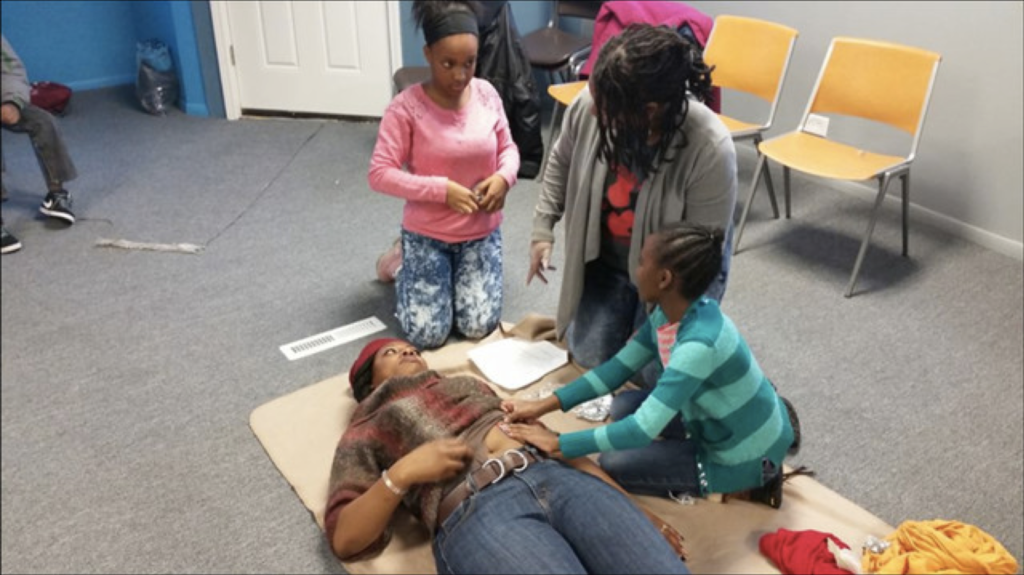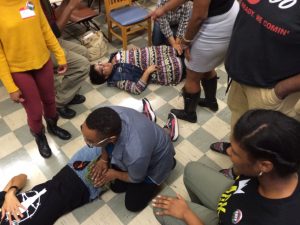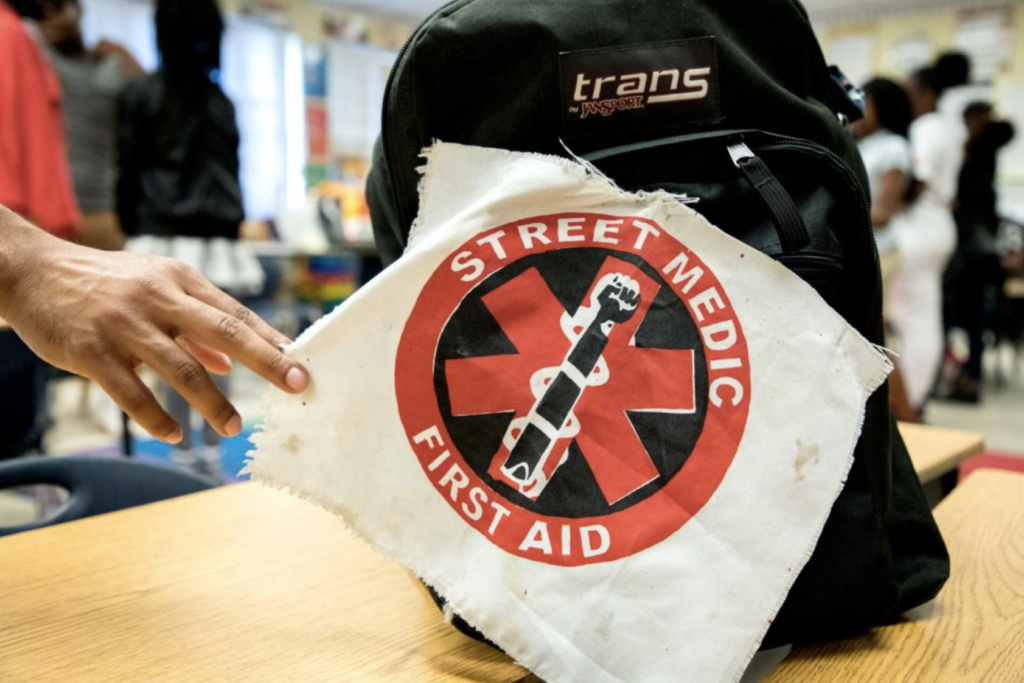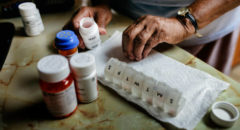
When you bring up Chicago to people who aren't from there, they usually have one of two views of the city: it's a bustling city with a great downtown area and businesses. While on the other hand, some say that it's "too dangerous" and it's the murder capital of the nation. Despite it's great schools, parks and businesses, Chicago is the center of America's gun violence epidemic, home to 3,457 shooting victims in 2017 alone. Slow ambulance response times, a shortage of hospitals, and a police force that isn’t required to administer first aid leave shooting victims with little to no chance for survival. But one grassroots organization is fighting to change that.
Ujimaa Medics or UMedics is a program that teaches Chicago residents to care for shooting victims, control a chaotic scene and talk to cops and paramedics. It's enabling families to take more control over their surroundings in a city plagued by gun violence while teaching how to help your neighbors can change your view of the city you live in.
According to their website, UMedics mission is simple: Leave No Homie Left Behind.

"Six years ago our hearts broke again when we lost another young person we never thought we would, taken far too soon. The fact that he was shot just a few blocks from one of the biggest and best hospitals in the country, and died on the way to another on the other side of town seemed to add grievous insult to grave injury. At his viewing, standing beside his casket, Amika became convinced that the hood could do better, that we could stabilize people if we knew how. Martine consulted first responders and added to her own medical training to develop the first version of our training that was shared with just a few family and friends. After more loss, we knew we couldn’t live with ourselves if we did not act, and finally taught our first public workshop in Fall 2014. Our first Train the Trainer was Spring 2015. UMedics was born."
Co-founders Amika Tendaji and Martine Carverl are happy the lives their organization has been able to impact so far, but they know there is more work to be done.
"A year and a half later, we couldn’t be more proud of our trainers and our communities. Watching an 11 year old teach how to treat a pneumothorax wound still brings tears to our eyes. It’s incredibly clear to us that when our people are armed with information and confidence, we are the best decision makers for our bodies and those in our communities. We’re excited to see what more we can accomplish together in 2017."
UMedics is now expanding its training to cover mental health and diabetes.
She said she knows the training isn’t a magic solution. It alone won’t solve gun deaths, segregation, health disparities or joblessness. But it is a strategic decision to invest in the people who live...
... on the South and West sides.
“We are in a situation where people are leaving Chicago. And for UMedics members, it’s a place that we love,” Caverl said to TheTrace.org. “We want that community, in particular our community, to feel a sense of pride in themselves and each other.”
That’s why, at the end of every training, they ask the group: Do you think the people in this room could help if you were hurt? Do you think they would?
Overwhelming, Caverl said, people say “yes.”
For more information about UMedics, go to Umedics.org










